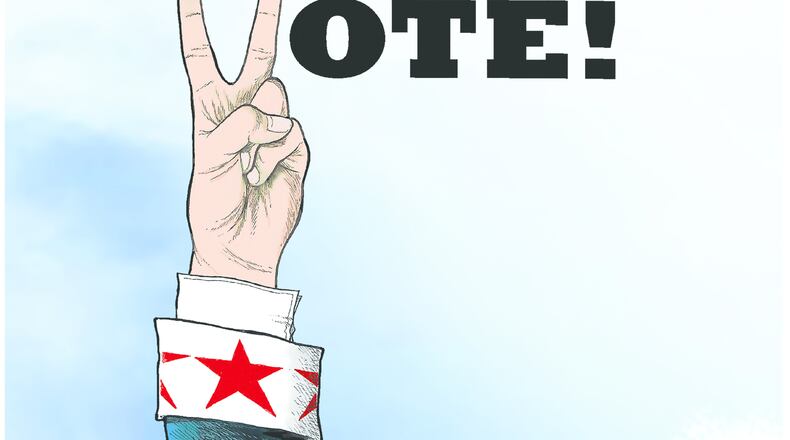As a political scientist who studies campaigns and elections, I have confidence in American democracy. Lots of people are working at the polls and behind the scenes to ensure election 2020 runs smoothly and safely. Here, I’ll outline your rights as a voter and explain where to turn if you encounter trouble at the polls.
First, a caveat: Elections in the U.S. are run by the states. Specific information about polling locations, how to vote can, etc. be found at the National Conference of State Legislatures website or your state’s Secretary of State website.
Check voter ID requirements before you leave to vote.
Voter ID laws in many states are strict, requiring a photo ID like a valid driver’s license. In Ohio, a current utility bill or bank statement will do.
Be prepared to stand in line.
Once you’re there, stay there: Even if your polling place closes while you are in line, you still get to vote. If someone tries to turn you away because the poll station closes, call the Election Protection Hotline (1-866-OUR-VOTE).
Ask for help if you need it.
If you make a mistake marking your ballot, ask poll workers for a new one. If voting machines malfunction, you can request a paper ballot.
Poll workers work with local election boards to ensure voting is safe and organized and assist voters who need help. Some poll sites may have greeters, who make sure voters are in the correct line and, during the pandemic, assist with cleaning.
Expect legitimate poll watchers.
“Poll watchers” are recruited by political parties to watch for activity that could undermine the interests of their party or group. Voters may go to them with questions. Just know they are not impartial resources. Other monitors at poll sites are nonpartisan observers, some of whom come from abroad to ensure the integrity of American elections.
The rules and laws about election observation vary by state but, generally, election observers do not engage with voters – they observe. “Challengers” are a kind of poll watcher who have the authority to question voters' eligibility. That’s one reason having proper identification is vital at the polls. Some states distinguish between “poll watchers” and “challengers” while others do not.
Report any intimidation.
If someone questions your qualifications to vote, identify this person and their authority to engage with you. Are they an official poll worker or a partisan volunteer?
There are no language requirements to vote – some states even have interpreters on site – nor must you pass a test first. If your eligibility is challenged or your name is not in the poll book, ask for a provisional ballot. Report any intimidation to the Election Protection Hotline, stay calm and follow the advice. The 2020 election is happening under difficult circumstances, but it is still a federal crime to interfere, in any way, with a person’s vote.
Daniel Birdsong is a lecturer in the University of Dayton Department of Political Science.
About the Author

